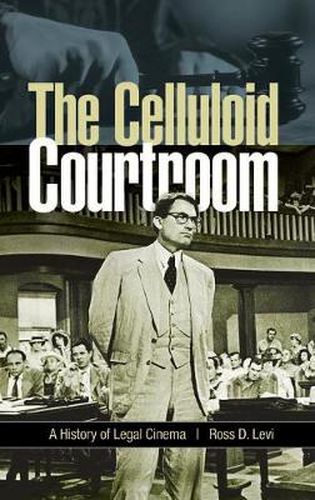Readings Newsletter
Become a Readings Member to make your shopping experience even easier.
Sign in or sign up for free!
You’re not far away from qualifying for FREE standard shipping within Australia
You’ve qualified for FREE standard shipping within Australia
The cart is loading…






The genre of legal cinema is an extensive and revealing one: It is a body of films that depicts lawyers, clients, criminals, judges, and juries, often not as they actually are, but as we would like them to be. The idealized courtroom of many legal movies tells us a great deal about what we think of the justice system and what we want it to reflect about America, but the films in the genre vary widely in how they do this. From To Kill a Mockingbird to Liar, from A Time to Kill to Twelve Angry Men, we see certain stereotypes repeating themselves again and again: the judge as stern referee, the jury as an ultimately fair body of decision-makers, the lawyer as hardworking and passionate fighter for the underdog. In this new and comprehensive study of this understudied category of film, author Ross D. Levi argues that, contrary to popular belief, legal movies show us a US legal system that is far more fair than the actual one, with corruption downplayed and greed made subordinate to compassion and compromise. These are films that have affected as much as reflected the American justice system, since people enter the courts hoping, often against hope, that they will match the impressions gained from the movies. With a comprehensive filmography, penetrating analysis - both legal and cinematic - and engaging and enlightening discussion, The Celluloid Courtroom is an indispensable guide to a key aspect of American movies and American justice.
$9.00 standard shipping within Australia
FREE standard shipping within Australia for orders over $100.00
Express & International shipping calculated at checkout
Stock availability can be subject to change without notice. We recommend calling the shop or contacting our online team to check availability of low stock items. Please see our Shopping Online page for more details.
The genre of legal cinema is an extensive and revealing one: It is a body of films that depicts lawyers, clients, criminals, judges, and juries, often not as they actually are, but as we would like them to be. The idealized courtroom of many legal movies tells us a great deal about what we think of the justice system and what we want it to reflect about America, but the films in the genre vary widely in how they do this. From To Kill a Mockingbird to Liar, from A Time to Kill to Twelve Angry Men, we see certain stereotypes repeating themselves again and again: the judge as stern referee, the jury as an ultimately fair body of decision-makers, the lawyer as hardworking and passionate fighter for the underdog. In this new and comprehensive study of this understudied category of film, author Ross D. Levi argues that, contrary to popular belief, legal movies show us a US legal system that is far more fair than the actual one, with corruption downplayed and greed made subordinate to compassion and compromise. These are films that have affected as much as reflected the American justice system, since people enter the courts hoping, often against hope, that they will match the impressions gained from the movies. With a comprehensive filmography, penetrating analysis - both legal and cinematic - and engaging and enlightening discussion, The Celluloid Courtroom is an indispensable guide to a key aspect of American movies and American justice.